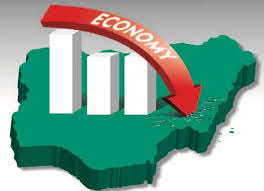Plastic recycling plant in Nasarawa state for solid waste management
The federal government’s municipal solid waste programme is a community-based scheme to curb the menace posed by wastes, particularly in the urban areas. HELEN OJI reports.
Urban migration and others
The community-based waste management programme is an intervention scheme of the federal government in municipal solid waste management, designed to assist states manage their municipal solid wastes in environmentally sound manner. The problem of solid waste is exacerbated by urban migration, over population, emergence of urban slums, industrialization, changes in consumption patterns, inadequate planning, inadequate resources
and facilities to sustainably manage waste that are being generated and is one of the gravest environmental challenges facing the country.
In recent years, States and Local Governments throughout the federation have intensified efforts to ensure that municipal solid wastes generated within their domain are properly managed.
However, the problem still persists as all manners of wastes are disposed-off indiscriminately on open and unlined pits, drainage systems, water bodies and in fact on any available space. More worrisome is the fact that both hazardous and non-hazardous wastes including hospital wastes are disposed-off in dumpsites and burnt openly. These practices pose great risk to the health of the citizens and environment.
Municipal solid waste
According to the, Minister of Environment, Dr. Mohammad Mahmood Abubakar said the federal government has designed the Community-Based Waste Management Programme as an intervention waste to wealth initiative to assist states manage their municipal solid waste in environmentally sound manner adopting the community based approach in which local communities buy-in and take ownership of the project for viability and sustainability.
“The programme is also expected to train and generate employment particularly for youths and women, attract private sector participation and investment including Foreign Direct Investment.
“Waste management instruments and putting in place new ones including policies, regulations, technical guidelines and standards to ensure that the wastes generated in the Country are managed in environmentally sound and sustainable manner with the Private sector as the main driver in waste management for viability and sustainability,” he stressed.
Specifically, the project in Karu Local Government Area is one of several such projects in Nasarawa state to boost the economy and employment, with the aim of spreading it across the geopolitical zones of this great country. The Nasarawa State Government has the following components. Awareness, Sensitization and Training on waste segregation at household level evacuation of wastes.
Continuous collection of wastes
Construction of plastic recycling plant (Pelletizer), construction of public toilet procurement of 2 waste trucks procurement of 2 waste receptacles to be placed in public places sulch as motor parks, market or high population density areas. Procurement and distribution of colour coded waste bins to facilitate waste segregation and recycling. Procurement and distribution of waste carriage bags for waste collection. A 250K VA soundproof generator. Training of personnel in plastic recycling plant operation.
Representatives of host community, Nasarawa government officials and Federal Ministry of Environment officials.
Public Private Partnership
He explained that competent private sector practitioners would be engaged to manage the public toilet and the plastic recycling plant in the spirit of Public Private Partnership (PPP) for
viability and sustainability. “We also expect that this project will be
replicated on the context of PPP arrangement. We equally advise full
involvement and participation of the host communities. The environment Ministry will also continue to monitor the performance of the project.
“The need to establish community based solid waste management intervention projects in Nasarawa state and in particular the greater Karu area, is adjudged by World Health Organisation (WHO) to be the fastest growing urban centre in the world with an estimated population of over 1.8 million by 2008.
He further stated that the greater Karu Area is a complex combination of nine rapidly expanding towns comprised of Tudun Wada, Auta Baef, Kuchkau, Masaka, Nyayan Gwandara, Nyayan Gbagyi, Karu, Ado, One Man village and Mararaba.
“The total daily tonnage of waste in the area is over 360 tones. Procurement of color coded waste bags and bins for waste segregation. Removal of back log of waste dumps within greater Karu Area. Continous collection of waste for period of time. Construction of a public toilet for male and female for the State. Provision of pick up van for the State with public address system sensitization and awareness of the public. Installation of plastic recycling plant for the State.
Procurement of Refuse Trucks (swing arm)with bins for the State and provision of Generator Plant. 77c State obligation for the projects are as follows, Provision of land for sitting of the plastic Recycling plant. Connection of the site to the Nationa and grid. Provision of water and access road to the site.
47m Nigerians practice open defecation- Minister
By Helen Oji
Abuja
Minister of environment Dr. Mohammad mahmood Abubakar, said 4.2 billion people of the world live without safe toilet and about 47 million Nigerians still practice open defecation, many people still use the bush and water bodies as their regular means for excreta disposal.
He made this statement while briefing journalist on the issue of open defecation to Commemorate World Toilet Day with the theme “Toilet For All Leaving No One Behind” in Abuja.
Abubakar added that reawakening of societal consciousness on the importance of having eco-friendly sanitary facilities in every household and ensuring proper management of sewage.
“We are addressing the sanitation challenges including ending open defecation in the country and ensuring proper management of excreta.
He urged stakeholders to draw attention to those people that are being left behind without sanitation, promoting access to toilets for everyone and everywhere, raising awareness and inspiring action to tackle global sanitation crisis.
According to him, the consequences of poor excreta disposal is the high rate of diarrhoea disease which is the second cause of high morbidity and mortality amongst children under the age of five. “The persistent re-occurrence of annual incidences of cholera outbreak in some of our states and other excreta related diseases are also manifestations of inadequate toilet facilities.
He noted that Access to sanitary facilities remains a mirage to a vast majority of our citizenry.



